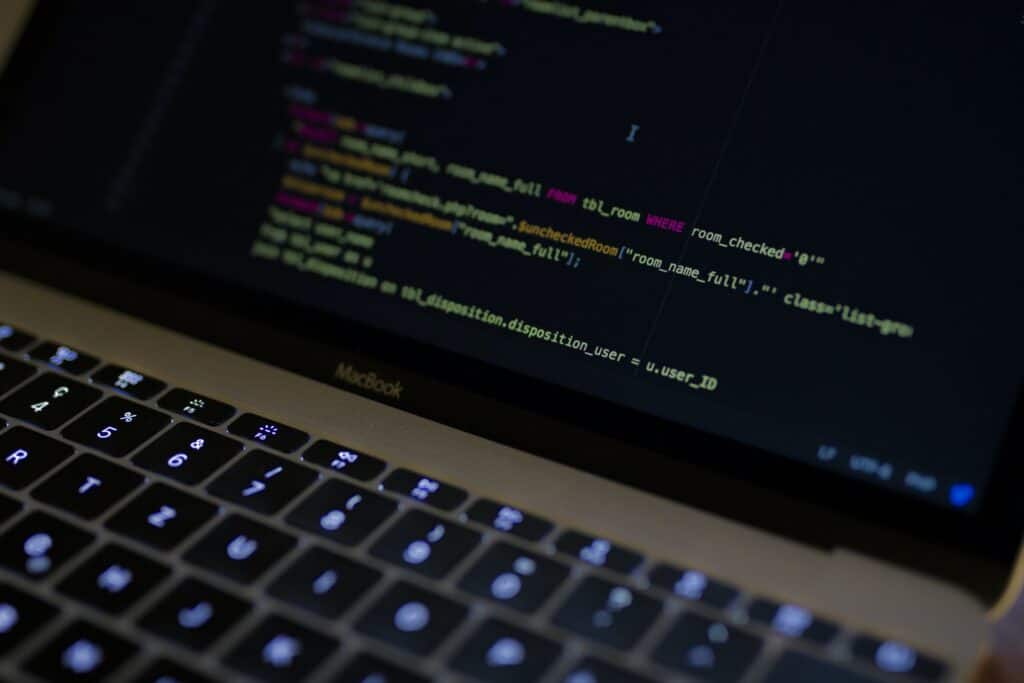
Perhaps, you can blame it on TV’s portrayal of hackers and programmers: from 24’s Chloe O’Brian to Mr. Robot’s Elliott Anderson they are often depicted as both brilliant and socially awkward. Being socially awkward is a personality trait, and it’s what most people think about when they are asked to describe a software engineer.
Software engineers might be socially awkward because they were probably shy in the first place, which led them to choose a career where they don’t have to deal with people too much. It also helps them do a better job when they’re allowed to concentrate and not worry about social interaction.
Read on as we explain why software engineers are often seen as socially awkward. Is this a stereotype, or is there a grain of truth behind this thinking?
What Is Social Awkwardness?
It may be challenging to find a conceptual definition of social awkwardness. Researcher Joshua Clegg put it succinctly as that feeling you get when you’re in a situation where you might not be accepted by others.
In general, social awkwardness is best described by what you feel and what you do. But how will you know if you’re socially awkward? The problem with social awkwardness is that there are no set diagnostic criteria because it’s not a mental health problem.
You will have to rely on certain feelings and patterns that you experience. You may be socially awkward if you regularly fail to notice social cues or if you misunderstand other people’s body language and non-verbal cues.
This article also notes that you may be socially awkward if you find it challenging to navigate through routine social situations and may have problems when it comes to observing social graces.
More than that, you tend to have an intense focus on topics that have a clear set of rules. As such, your favorite topics are typically mathematics or logic. However, regular conversation may be problematic for you.
What Social Awkwardness Is Not

Social awkwardness can often be mistaken as some other condition. For instance, some socially awkward individuals are thought to be autistic or socially anxious.
It’s better to understand the differences so you can get the help that you need.
It Is Not Social Anxiety
Social anxiety is a mental health condition that may impair your social interactions. According to the Social Anxiety Institute, people suffering from social anxiety disorder tend to fear and avoid:
- Getting introduced to strangers
- Being criticized or teased
- Being given attention, whether somebody is watching them do something or being the center of attention in the crowd
- Meeting important people or those in authority
- Having to speak in front of people
- Maintaining interpersonal relationships
People suffering from social anxiety disorder may have specific phobias, such as speaking in public. Others may feel anxious in almost every social situation they encounter.
People with SAD often exhibit physical manifestations as well. You often see them turn beet red, sweat profusely and tremble uncontrollably. They may find their hearts racing, their mouths and throats getting dry, or their muscles beginning to twitch.
They feel an intense fear when they get into social situations, and that fear never goes away. Social anxiety disorder is the third biggest psychological disorder in the United States, with around seven percent of Americans suffering from it.
It Is Not Introversion
Introversion is a personality trait in people who want to look inward to gather and focus their energy. They interact more with their own ideas and thoughts.
Introverts are often described as reserved, kept to themselves, or prone to reflect on things. They are okay with being alone because they like to pick their own thoughts.
Introversion and social awkwardness are both personality traits. But for socially awkward people, they don’t know social norms and are uncomfortable with social situations. Introverts are not; they just prefer their own company instead of socializing with people.
It Is Not Autism
Because there are similarities between autism and social awkwardness, some people mistake one for the other. People with autism often have problems understanding social norms and may even falter when handling social situations. Plus, people with autism usually display an intense focus on certain things.
However, autism is much more pronounced, and in severe cases where the person has low-functioning autism, they may not even be able to bathe, dress, or eat by themselves. Autism can also manifest in:
- Having no filter, as they may find it difficult to hold back or regulate their emotions
- Difficulty in making and maintaining eye contact
Being Socially Awkward Is Part of the Job

To be clear, no studies show that software engineers and other groups of people are more socially awkward than the general population, but some anecdotes point towards this trend.
For instance, Gary Donovan at TechJaw writes that in a room full of software developers, the tendency is to have more introverts than extroverts. Sarah Katz, a software developer, also shares her experience with social anxiety and shyness, noting that there are many others who suffer from the same thing.
But why is that?
Donovan writes about how being an introvert actually helps software developers be better at their jobs. He says that programming, by its very nature, requires you to be okay with working alone.
Plus, it involves concentration on things related to both math and logic. In short, software engineers are more effective when they adopt behaviors that are characteristic of socially awkward individuals.
These observations have the science to back them. In challenging stereotypes that most people have about software developers, Inc.com’s Jessica Stillman found a study that showed that intelligent and introverted programmers tend to do better at their jobs.
It seems that social awkwardness is not bad for software developers at all.
Software Development Doesn’t Encourage You to Be Social
What’s more, the job that software developers do most of the time doesn’t force them to be in social situations.
A list of the highest paying jobs that do not require too much social interaction was published by Business Insider in 2016. They looked at data from the Occupational Information Network, which ranked jobs according to employees’ preference to work with others and then assigned a number from one to 100.
This number is what they call social orientation importance level. The higher the number, the more you need to be connected with others. Software developers figured prominently in the list with a median salary of $98,260 and a social orientation importance level of 33.
Working With Computers Can Hinder Both Social and Communication Skills
Software development doesn’t provide you with a lot of opportunities to develop social skills. You know how to code, and you expect a specific response from a machine. If it doesn’t work, you fix it and try again. But that’s not how conversations with humans work.
If you’re spending time working on an application, then you aren’t spending it mingling with people. Unlike a salesperson who earns his or her keep from interacting with people, you are probably going to grapple if you want to meet people in a bar.
Becoming Less Socially Awkward

While social awkwardness may be the norm among software engineers, it might potentially be a problem. What’s more, you may want to overcome being socially awkward if you want to do better.
After all, some software engineers do work in a company, and there will be more than a few collaborations when it comes to working. What’s more, if you’re looking to advance your career, social skills are going to become more important.
Leadership and management roles in IT will involve working with people, from overseeing your staff in assisting the end-users and even talking with other department managers and the non-IT executives.
The same is true with project management. Big software projects tend to have teams working on it. If you can’t be relied upon to run a meeting smoothly, then you’d probably not make it as a team lead. Another path you can take is to become a consultant, where you are expected to interact and communicate with clients.
Being socially awkward is not necessarily a bad thing. But it might be an issue if it prevents you from making friends or it keeps getting in the way of smooth social interactions. What’s more, it might prevent you from moving up the professional ladder.
To become less socially awkward, it helps to remember that it happens to everyone. So, relax: everyone else can relate to what you’re feeling.
If you do find yourself in an awkward situation, then you should face it head-on, rather than ignore what happened. Address the social blunder by making light of it, cracking a joke, or acknowledging it with a cool and casual remark.
You can also improve your communication skills. Here are what’s important:
- Know when and how to strike up a conversation
- Know when the conversation is over
- Know how to smoothly change the subject
- Avoid interrupting somebody when they’re talking and know when it’s proper to interject
What’s more, you should learn how to read non-verbal cues or body language. These will help you know if the other person is uncomfortable, bored, or uninterested.
Seeing a Therapist
If you are unhappy with being socially awkward, then you might want to try talking to a therapist.
A therapist can help you learn new communication and social skills. They can also figure out if it’s just social awkwardness or something serious like social anxiety or SAD.
Learning More
Some books can help you understand social awkwardness more fully and how to overcome them. First, there’s Awkward: The Science of Why We’re Socially Awkward and Why That’s Awesome, which explains why it’s okay to be socially awkward and not be bothered by it if it’s in your nature.
For those who are looking to improve their social standing, there are books like The Social Skills Guidebook: Manage Shyness, Improve Your Conversations, and Make Friends, Without Giving Up Who You Are and Social Skills: Top 10 Mistakes That Destroy Your Charisma… and How to Avoid Them.
Conclusion
Software engineers might be socially awkward because it brings out the best in them at work. It helps them do more and concentrate on what’s important. What’s more, the job doesn’t really encourage them to break out of their shells, because software design and development has very limited requirements for working with other people.
However, because today’s workplace is gearing towards collaboration and most higher positions require excellent communication and people skills, you might want to work on your social awkwardness. The good news is that it’s possible to overcome it.
